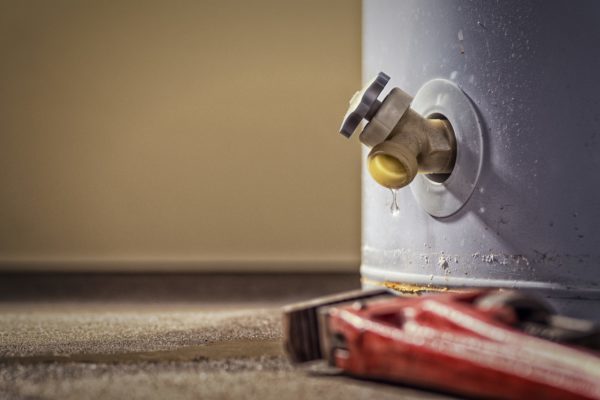
Warm water provided by your water heater is a convenience that modern technology affords us. As these systems are turned on and activated, you enjoy hot water on demand. Should an issue arise with your hot water heater, you have the peace of mind that a plumber can be called for repair and replacement services. While it would be wonderful if these systems could function indefinitely, the reality is that a small amount of regular maintenance is needed to make sure your hot water convenience and comfort don’t run out.
Before you think you’re in the clear, evaluate whether you’ve done what you can to maintain your home’s vital heat fixtures before winter arrives. While many may not think of their water heater as an essential winter appliance, one can never underestimate the value of having hot water when you need it most. Even if your home does not use hot water energy for home heating, use of hot water in your home is a convenience that makes daily living more sanitary and efficient. Preparing your water heater for winter is a series of simple steps and maintenance checks that can be performed by your friendly neighborhood plumbing professional. Make sure you’re ready for the change of seasons and check these “to do” items off your list.
Check the Pilot Light
A pilot light is powered by natural gas. The pilot light indicates that your water heater is heating and regulating water temperature as it should. If you discover that your pilot light has gone out, you’ll need to call your plumber to light it safely once more. Natural gas issues and components powered by natural gas should never be modified by you, as one wrong move could result in injury to you and harm to your appliance.
Test the Heating Element
Your plumber will also need to test the water heater element via a multimeter. A simple reading on the multimeter will determine if the water heater element needs to be replaced.
Check the Temperature and Pressure Relief Valves
Prior to checking the temperature and pressure relief valves, your plumber will cut off power to both the water and power supply to your unit. This critical component of your water heater functions as a safety feature to regulate and control both the temperature and pressure inside your tank. This valve can malfunction and become clogged or sticky with debris, which can be a potentially dangerous situation if pressure continues to build up inside your tank. Your plumber will likely test the pressure and temperature inside your tank and make recommendations for repair or replacement if needed.
Check Anode Rods
Inside a water heater is an aluminum or magnesium rod that is responsible for attracting corrosive particles and keeping them from eroding the inside surface of your tank. These anode rods will need to be replaced every three to five years, as they have a dirty job to do. Your plumber will assess your hot water tank to make sure that the anodes are working and will make recommendations for replacement if necessary.
Flush the Tank
Even the cleanest water has some sediment buildup that can quickly corrode and compromise your tank. If you hear popping or sizzling noises when your hot water is on, you likely have sediment in your tank. Regular flushing of your tank will optimize its function and extend the life of your water heater over time.
Adjust the Thermostat
A hot water system needs adjustment from time to time. An electric water heater must be turned off completely before removing an access plate that will allow you to raise or lower temperatures. Gas water heaters require you to twist and adjust the dial at the bottom of the unit. If temperatures still aren’t responding to adjustment, it may be time to replace the thermostat.
Insulate Piping
Water pipes can be susceptible to freezing in some parts of the country. Have your plumber check all piping going into and out of the unit to make sure water is flowing as it should. Pipes that are at risk of freezing during colder weather should be wrapped with a pipe sleeve or insulated material.
Move Your Tank If Necessary
In some homes, the placement of a water heater is not ideal to keep water warm and well-regulated. Reduce the impact of cold weather on your unit by moving it to a warmer location in your home that is easily accessible to both you and your technician.
Vent Your Hot Water System
Your water heater requires clear vents that will take in oxygen and expel carbon dioxide efficiently. You’ll need to remove debris, such as leaves, dirt, dust, and animal hair, in order to ensure that these vents function well. Consider the installation of metal guards or mesh coverings if your heater doesn’t already have them.
Fix Tankless Issues
A tankless heater can have unique issues, such as water flow and pressure issues, at the site where it is placed. This will inevitably impact your ability to supply faucets, sinks, and tubs with hot water on demand. Have a plumber assess the function of each of your tankless units and perform maintenance and flushes if needed.
Adjust Solar Hot Water Issues
Solar power is only as good as your panels are. Failure to adequately maintain your solar panels will inevitably cause issues with your solar water heater as well. For consistent hot water supply, keep panels clean and free from damage. Consider the addition of an electric or gas booster to ensure that you keep hot water flowing on cloudy days.
Inspect for Signs of Erosion and Corrosion
If you have an older water heater installed in your home, take a proactive approach to check for signs of corrosion and erosion. Anode rods can quickly fail inside your tank, and when this happens your tank is particularly susceptible to corrosion that can quickly cause rust, leaking, and eventual failure. Have your plumbing professional assess for signs of wear and tear, and make a plan for repair and replacement services over time.
When All Else Has Been Done, Replace!
If your water heater is on the way out, it may be time to consider a replacement. Don’t wait until cold temperatures are already upon you; talk to your plumbing professional to determine if a repair is the best option.
Serving You and Your Plumbing Needs
Apex Plumbing is ready to serve you and all of your plumbing needs this season in Columbus, OH. Providing 24/7 service to our valued customers, we are ready to provide you with all the winter preparation you need for your plumbing fixtures and appliances.
Call us today for an assessment of your plumbing and water heater as we prepare you for a warmer winter, one service call at a time. We provide plumbing, drain services, and sewer and excavation services. You can also turn to us for any bathroom remodeling projects that will require changes made to your plumbing system. We offer commercial plumbing services, too.





